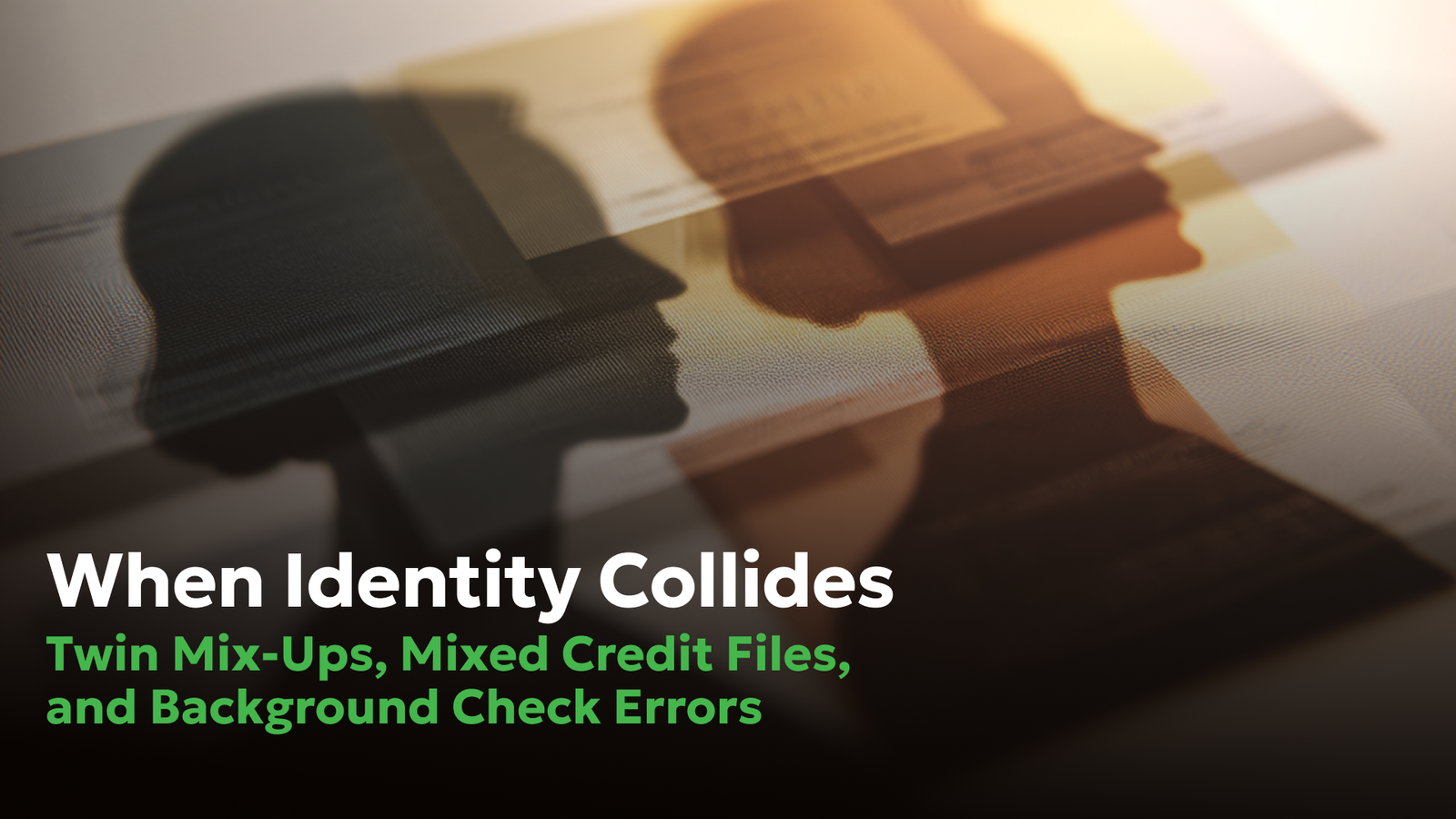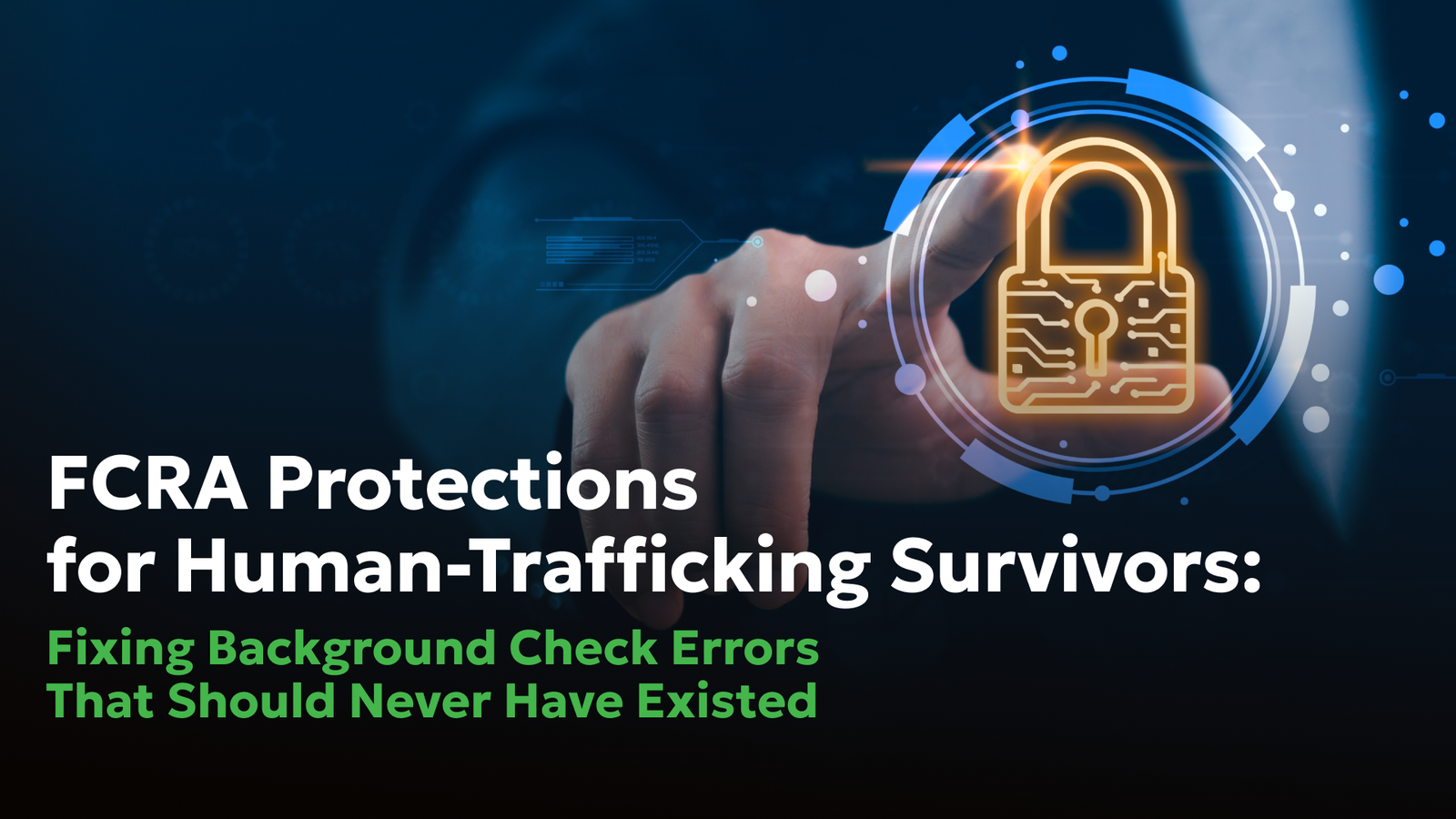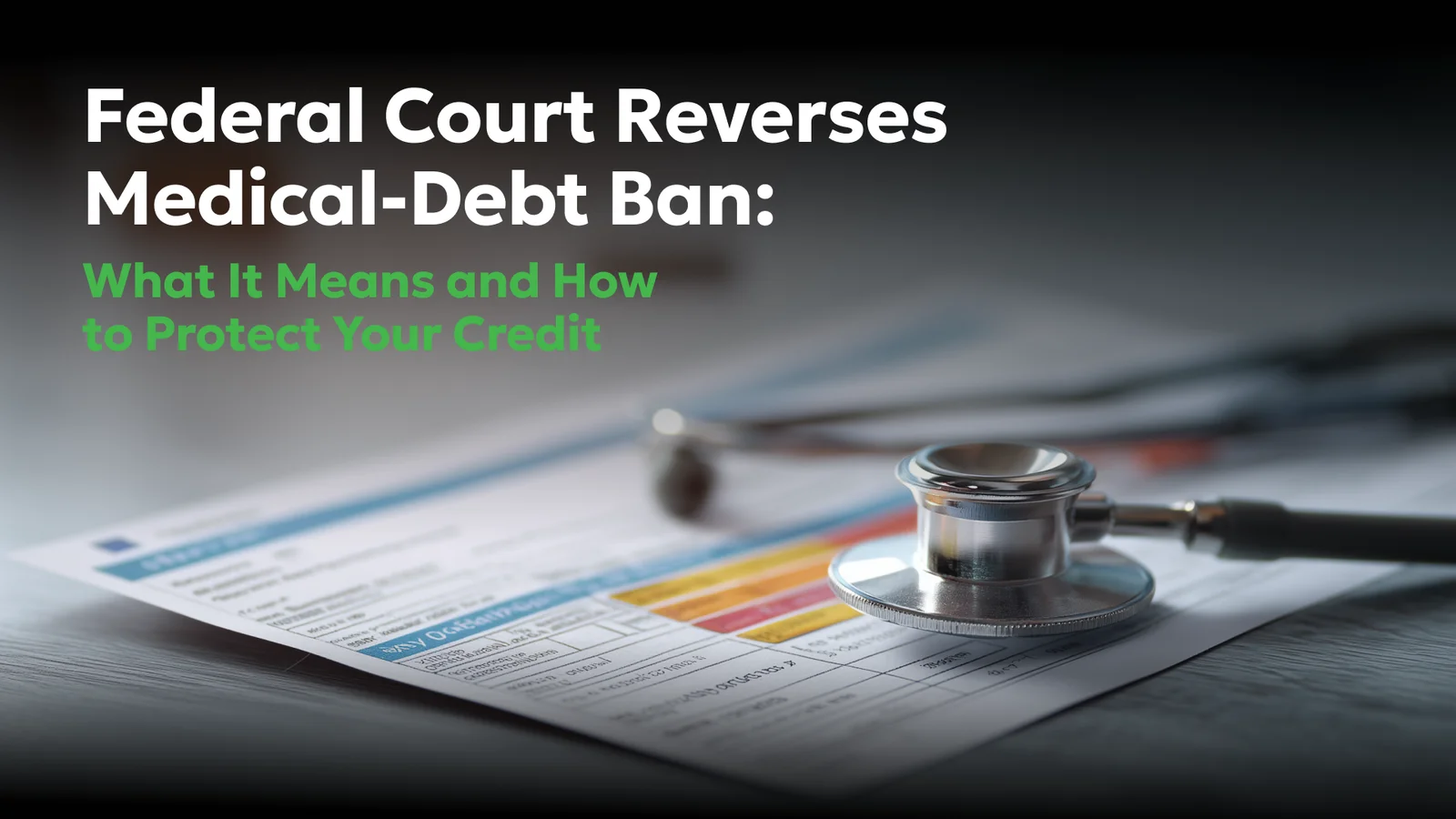Credit Lock vs. Credit Freeze: Marking the Differences
- Blog
- Credit Reporting Inaccuracies
Credit Lock vs. Credit Freeze: Marking the Differences

Credit freeze or credit lock? Know the difference and why it matters. Consumer Attorneys examines both options.
You want to rely on financial systems. But with the constant threats of identity theft and consumer fraud - you also want to be proactive. We represent thousands of consumers dealing with credit issues, so we know how devastating erroneous credit reports can be. Here, we examine two avenues of credit protection - the credit freeze and the credit lock.
There are times when it becomes necessary to block access to your credit reports. Typically, those times are when you suspect some threat to your credit, usually some kind of consumer fraud or identity theft. There are two main ways to do this: the credit freeze and the credit lock. In this article, we discuss each, identify the differences, and provide guidance on which one is best for you.
Every situation is different. If you have specific questions or have been damaged by a credit reporting agency’s mishandling of a credit freeze or credit lock, contact an identity theft defense lawyer. They can assess your situation and help you decide: credit lock vs credit freeze?
Highlights
Both a credit freeze and a credit lock exist to protect you, the consumer. One is free and exists because federal lawmakers identified the need for a consumer protection mechanism and did something about it. The other is typically a feature of a credit reporting agency and, therefore, costs something.
What is a Security Freeze?
A credit security freeze, also known simply as a credit freeze, is a consumer protection measure that allows individuals to restrict access to their credit reports. It's an effective tool to prevent identity thieves from opening new accounts in your name. When your credit report is frozen, creditors, who usually check your report before opening a new account, cannot access it unless you lift the freeze temporarily or permanently.
How to Freeze Credit
A credit freeze is free and is initiated on the websites of the major credit reporting agencies: Equifax, Experian, and TransUnion. While you can also initiate a freeze on the phone and via U.S. mail, circumstances often require an immediate freeze, and online freezes provide the best avenue to an immediate freeze.
To place a freeze, you will need to provide your personal information, such as your name, address, date of birth, and Social Security number. You will need to do this for each of the three major credit reporting agencies. Once activated, a freeze does not affect your credit score, nor does it prevent you from getting a free report or stop you from opening a new account yourself. However, you'll need to plan ahead and lift the freeze using a PIN or password before applying for new credit.
You can lift a credit freeze temporarily or permanently.
While a credit freeze offers strong protection against fraud, it also requires more effort to manage. Lifting a freeze, whether temporarily or permanently, may take a few minutes to a few days. It’s a great defense if you are very concerned about identity theft and fraud, especially if you don't anticipate needing new lines of credit frequently or applying for a loan in the immediate future.
When to Unfreeze Your Credit
You likely had your credit frozen due to some concern or suspicion that you were the target of some kind of identity theft or consumer fraud. Now you have to decide when to unfreeze your credit. It’s important to note that you can lift the freeze temporarily or permanently.
You should unfreeze your credit when the threat to your credit dissipates. The most common reason to unfreeze your credit is to apply for new credit, such as a mortgage, car loan, or credit card. Lenders need to access your credit report to assess your creditworthiness, and a freeze prevents them from doing so. Planning is crucial, as unfreezing can take from a few minutes to a few days.
Other situations where unfreezing your credit might be necessary include applying for a job, renting an apartment, or setting up utility services, where credit checks are often part of the process. Some employers, especially in the financial sector, check credit reports as part of their background checks. Landlords and utility companies similarly review credit history to evaluate payment reliability.
Whenever your credit report needs to be accessed for legitimate purposes, and you've ensured the requester's authenticity, unfreezing your credit will be necessary. You must balance between maintaining security against identity theft and facilitating the necessary credit-related processes of life.
What is a Credit Lock?
Security freeze sounds pretty good. So what is a credit lock? And how to decide between a security freeze vs credit lock? A credit lock is a mechanism offered by some credit reporting companies by which consumers can protect themselves from identity theft and credit fraud. Just like a freeze, a credit lock gives you power over who sees your credit reports. A credit lock is particularly useful in preventing consumer fraud criminals from opening new accounts in your name, as creditors typically check your credit report before approving new credit applications.
The mechanism of a credit lock is just like a freeze: when you lock your credit report, lenders and other entities cannot access your credit information without your permission. This makes it very difficult for identity thieves to misuse your personal information to open unauthorized accounts. To lock or unlock your credit report, you usually use a secure app or website, which makes the process quick and user-friendly. This ease of controlling access to your credit report is a key advantage of a credit lock over a credit freeze. Recall credit freezes require a PIN.
There will likely be costs with maintaining a credit lock. Credit locks are often offered with other packages from credit reporting companies and frequently come with additional features, such as real-time alerts if someone attempts to access your credit file or if there are significant changes to your credit report. These features provide an extra level of security and peace of mind.
Also, unlike credit freezes, which are legislated and regulated, credit locks are based on an agreement between the consumer and the credit reporting agency or service provider. This means the terms and conditions, as well as the protections offered by a credit lock, will vary from one provider to another.
Who Can Still See Your Credit Report When It’s Locked: Exceptions
Even when your credit report is locked, there are specific entities and situations where access to your credit report is still permitted, forming exceptions to the lock. These include:
- Existing creditors or debt collectors. Companies with whom you already have a credit account or debt may still access your credit report. This is essential for them to manage and review your existing account.
- Government agencies. In certain cases, government entities may access your report for collecting child support payments or taxes or for investigating a court order or subpoena.
- Your own requests: You can always access your own credit report. This ensures that you can check your credit status and monitor for any discrepancies or fraud.
- Pre-approved credit offers: Companies can still access your report for pre-approved credit or insurance offers unless you opt out of such offers.
- Employers or potential employers. However, this is only with your explicit consent, typically for employment verification or background checks.
Understanding these exceptions is crucial as they illustrate that a credit lock, while robust, is not an absolute barrier to accessing your credit report.
Comparison: Credit Lock and Credit Freeze
A credit lock and a credit freeze are both tools you can use to protect your credit report from unauthorized access. Each has distinct activation procedures, legal consequences, and features. So, credit lock vs credit freeze, what’s the difference? And what’s the difference between credit report lock vs credit freeze? Which one is best for you? We’ve prepared this chart to assist you.
| Feature | Credit Freeze | Credit Lock |
|---|---|---|
| Definition | A restriction placed with a credit reporting agency that prevents others from accessing your credit report. | An agreement with a credit reporting agency or service provider to restrict access to your credit report. |
| How Consumers Manage | Managed online, by phone, or by U.S. mail through a formal process with each of the credit bureaus (Equifax, Experian, TransUnion). Often requires a PIN or password. | Managed through a mobile app or online with the credit bureau or the service provider. |
| Legal Regulation | Governed by federal law (the Fair and Accurate Credit Transactions Act amendment to the Fair Credit Reporting Act). | Governed by the terms of the agreement with the credit reporting agency and not regulated by federal law. |
| Cost? | Usually free. | Likely part of a subscription service with a fee. |
| Ease of Activation and Removal | You have to go to the website of each credit reporting bureau and initiate. Each will send you a PIN to reactivate. By law, reactivation must be done within one hour if done online. | You can activate and remove it almost instantly, usually with a click or swipe on a credit reporting agency app. |
| Affect on Credit Score? | No direct impact on credit score. | No direct impact on credit score. |
| Accessibility for New Credit | Must be temporarily lifted for credit applications, which can be cumbersome. | Easily and quickly lifted for credit applications. |
| Additional Features | Generally, no additional features. | Often includes additional features like credit monitoring, alerts for attempts to access your credit report, etc. |
| Ideal For | People who want a free, legally protected way to secure their credit report, especially if they don't need frequent access to new credit. | Those who prefer convenience and may need to frequently lock and unlock their credit, often bundled with other credit protection services. |
Lawyers for consumer protection can provide tailored advice about both of these and help you if you have been the victim of consumer fraud, identity theft, or a consumer credit company’s mistake regarding either.
Which Choice is Better for You
Credit lock vs credit freeze. Note the differences in the chart above. Both a credit freeze and a credit lock serve the similar purpose of protecting your credit from unauthorized access. They differ significantly in terms of management, legal authority, cost, and additional features. The choice between the two depends on your individual needs for convenience, frequency of accessing new credit, and desire for additional credit monitoring services.
Contact Us
Call Consumer Attorneys if you have any questions about credit locks or credit freezes or if you have any problems with credit reporting in general. We can help you fix issues with your credit report, decide between credit freeze vs lock, and also make sure your rights to sue are preserved should we discover damage to your financial health.
Contact us by:
- Emailing us at info@consumerattorneys.com to request a meeting with an attorney.
- Calling us at +1 877-615-1725.
Unlike other attorneys, consumer protection is 100% of our practice. We have helped thousands of people recover from credit bureau mistakes and reporting errors.
Frequently Asked Questions
Yes. Both credit freezes and credit locks are reversible. Both are preventive measures by which consumers can protect their credit. Once the threat is eliminated or once the consumer needs to provide access to their credit, both can be reversed. Because a consumer initiates a credit freeze by contacting each credit reporting agency, a consumer must use a PIN to unlock or unfreeze a credit freeze. Federal law requires credit bureaus to unfreeze a person’s credit within one hour. Because a credit lock is initiated by the consumer, the consumer can unlock their own credit using each credit reporting agency’s app or website.
At Consumer Attorneys, all we do is credit. We represent consumers whose credit reports, financial well-being, and entire lives have been damaged by someone else’s carelessness, recklessness, or intentional violations of consumer protection laws. We know the law, we know how to engage in legal combat with large corporations, and we know how to get consumers the compensation they deserve. Most importantly, we care about consumers. We care about our clients and we also care about the world of consumer protection in general. We listen, we apply the relevant law, take the appropriate action, and get results. And throughout it all, we care.
Consumers cannot use a credit freeze and a credit lock simultaneously. While both options are available to consumers, using either one eliminates the need for the other. Federal law requires credit bureaus to provide a free mechanism for consumers to block access to their credit. This is called a credit freeze, is usually engaged following suspected identity theft or fraud, and requires a PIN to lift. Larger credit reporting agencies offer consumers the option of a credit lock. This is usually a service consumers pay for and allows them to regularly and repeatedly freeze their credit themselves via an app or over a website.
The attorney-client and the attorney work product privileges are two of the most fundamental, sacred, and necessary doctrines of our legal system. Together, these doctrines require us to use extreme care to secure the things that you tell us and the work that we do for you. Because all we do is work on consumer protection cases, we understand that confidentiality is an especially sensitive issue for those whose confidentiality has been compromised. This unique understanding, coupled with our legal duty to maintain confidentiality, means we make confidentiality a top priority.
The facts of every case are different. Every client’s situation is different. Every lawsuit is different. Therefore, the length of time between our initial phone call and the resolution of your case will vary. There is no formula. We have an initial phone call when we listen to your story and ask questions so we can understand the details of your situation. Then we identify the right people to sue, file a lawsuit in the right court, and the case begins. For some people, it’s best to settle. Others go to trial. Either way, knowthat we will work tirelessly for you.


Daniel Cohen is the Founder of Consumer Attorneys. Daniel manages the firm’s branding, marketing, client intake and business development efforts. Since 2017, he is a member of the National Association of Consumer Advocates and the National Consumer Law Center. Mr. Cohen is a nationally-recognized practitioner of consumer protection law. He has a we... Read more
Related Articles




R
ONGS™You pay nothing. The law makes them pay.







